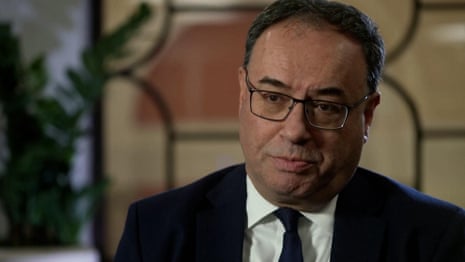It is now exactly a year since the Bank of England started raising interest rates from a record low of 0.1%. Threadneedle Street has increased the cost of borrowing at each of its nine meetings since December 2021 and after the latest 0.5 point jump it now stands at 3.5%.
By historic standards that seems nothing to get worked up about. In the period between 1997 – when the Bank was granted its independence – and the start of the financial crisis a decade later interest rates never dropped below 5%. In the 1970s, 80s and early 90s, official borrowing rates were often well into double digits.
.
There is not the remotest possibility that rates will get back to 10% or higher in the current tightening cycle. The financial markets believe they will peak at 4.75% next year after further action by the Bank to bear down on inflation.
Even so, the speed at which rates have risen and the dawning realisation among borrowers that there will be no return to the emergency levels reached during the Covid-19 pandemic is bound to have an impact on an already weak economy. Interest rates were at rock bottom levels for well over a decade following the financial crisis of 2007-08 and an entire generation has grown up believing that ultra-cheap borrowing is the norm. What’s more, many people have bought houses at high loan-to-income ratios in the belief that mortgage rates will be permanently low.
Bank of England raises interest rates to 3.5%Read more
Those people have now seen interest rates rise by more in the last 12 months than in any year since 1989, and are now facing a serious reality check. While fixed-rate home loans will shield them for a while, they will eventually have to remortgage at significantly higher rates.
As the minutes of the latest monetary policy committee (MPC) meeting show, the boom in the housing market is over. Buyer demand is weakening and both the Nationwide and Halifax have reported sharp monthly falls in property prices.
 00:01:57’Inflation is too high’: Bank of England governor explains interest rate hike – video
00:01:57’Inflation is too high’: Bank of England governor explains interest rate hike – video
The good news for over-extended borrowers was that two of the nine MPC members – Swati Dhingra and Silvana Tenreyo – voted to keep interest rates at 3%. The bad news is that most of the committee thinks further increases in rates “might be required” for a sustainable return of inflation to its 2% target. One member, Catherine Mann, backed a 0.75 point increase.
skip past newsletter promotion
Sign up to Business Today
Free daily newsletter
Get set for the working day – we’ll point you to all the business news and analysis you need every morning
Enter your email address Enter your email address Sign upPrivacy Notice: Newsletters may contain info about charities, online ads, and content funded by outside parties. For more information see our Privacy Policy. We use Google reCaptcha to protect our website and the Google Privacy Policy and Terms of Service apply.
after newsletter promotion
The likelihood, therefore, is that rates will go up again at the Bank’s next meeting in February and that they will not start to come down again until the MPC is convinced pay pressure is firmly on the wane.
For borrowers the message is clear. Unless there is a fresh, unexpected shock, there is no chance of official rates returning to 0.1% and they will have to adjust to the new, much tougher, environment.



